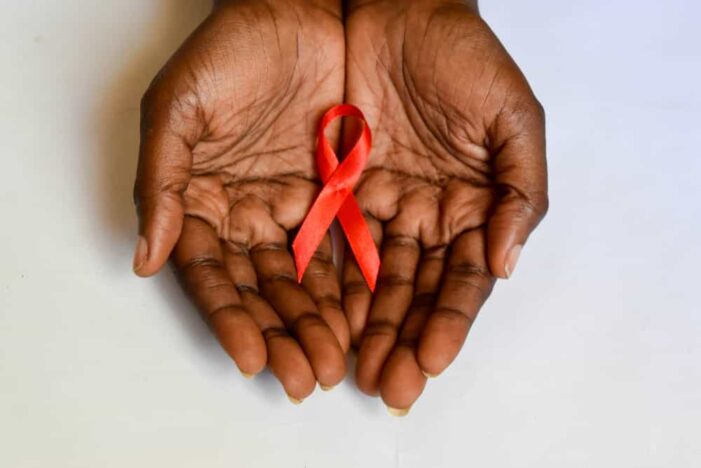By PAHO
Friday, 22 March 2024, (PANCAP Coordinating Unit, CARICOM Secretariat): The Pan Caribbean Partnership against HIV and AIDS (PANCAP), the mechanism that provides a structured and unified approach to the Caribbean’s response to the HIV epidemic, concluded the Eighth Meeting of National AIDS Program (NAP) Managers and Key Partners in Trinidad and Tobago on Wednesday, 20 March 2024.
Policymakers, program managers, representatives of civil society organizations, the community of People Living with HIV (PLHIV), and those at the highest risk for HIV attended the two-day meeting.
After intense deliberations, participants explored various strategies for scaling up their work on HIV and other sexually transmitted infections (STIs) in their respective countries. Stronger coordination and better collaboration within and among governments, key stakeholders, and partners, including civil society organizations, must stimulate greater emphasis on relevant and accurate data collection regarding HIV and other diseases.
Discussions also revolved around scaling up HIV self-testing (HIVST) throughout the Region so that countries can reach their prevention targets with greater efficiency. HIVST has shifted the paradigm for HIV testing, the first step in the care continuum. Through concerted regional efforts, the scale-up of HIVST will result in substantial progress in HIV testing, prevention, and care. It can result in countries achieving the First 95 in the prevention targets, in which PLHIV know their status.
The meeting further highlighted the urgent need to examine the various national and regional policies and program responses related to HIV treatment and care to reflect a person-centered differentiated model of care. Utilizing the person-centered approach that simplifies and adapts HIV services across the cascade in ways that both serve the needs of people living with or vulnerable to HIV can reduce unnecessary burdens on the health system within the Region. Greater emphasis on person-centered care where the individual matters and not their designation must be paramount. There were discussions on strengthening efforts to shift diagnostics away from healthcare facilities. It was also proffered that sustainable systems for community-based delivery and expanding access to person-centered treatment and prevention services must be developed more broadly.
There were also discussions on the need for significant emphasis to be placed on how children are treated within the general HIV response. Moreover, there must be more strategic efforts to anchor the treatment of children into the various available Maternal and Child Health (MCH) programs.
Increased use of Information and Communications Technology (ICT) must form part of the overarching regional HIV response, enabling advocacy, mobilization, and empowerment of PLHIV, women, and other vulnerable groups. Specific ICT platforms reduce costs and can potentially reach people on a more targeted level. Telemedicine was also discussed to access hard-to-reach communities that may pose a challenge to other forms of ICT.
The meeting also discussed the need for strong, cohesive community responses. Communities must play a heightened role in supporting national HIV responses. These communities must have a more defining role not only in HIV but also in health generally.
Director of the PANCAP Coordinating Unit (PCU), Dr Wendy Telgt Emanuelson, underscored the commitment of the PCU to assist countries in implementing the key takeaways from the discussions and ensuring tangible progress in addressing HIV and AIDS in the Region. She also acknowledged the support of PANCAP’s development partners, the Global Fund, the Pan-American Health Organization (PAHO), the Joint United Nations Program on HIV and AIDS (UNAIDS), and the United States Agency for International Development (USAID).
WHAT IS PANCAP?
PANCAP is a Caribbean regional partnership of governments, regional civil society organizations, regional institutions and organizations, bilateral and multilateral agencies and contributing donor partners established on 14 February 2001. PANCAP provides a structured and unified approach to the Caribbean’s response to the HIV epidemic, and coordinates the response through the Caribbean Regional Strategic Framework on HIV and AIDS to maximize efficient use of resources and increase impact, mobilize resources and build the capacity of partners.
What are the 95-95-95 Targets for ending AIDS?
- 95% of People Living with HIV know their HIV status;
- 95% of people who know their status on treatment; and
- 95% of people on treatment with suppressed viral loads.
HELPFUL LINKS:
Global AIDS Strategy 2021–2026, End Inequalities, End AIDS
https://pancap.org/pancap-documents/global-aids-strategy-2021-2026-end-inequalities-end-aids/
Caribbean Regional Strategic Framework on HIV and AIDS (CRSF) 2019-2025
https://pancap.org/pancap-documents/caribbean-regional-strategic-framework-2019-2025/



